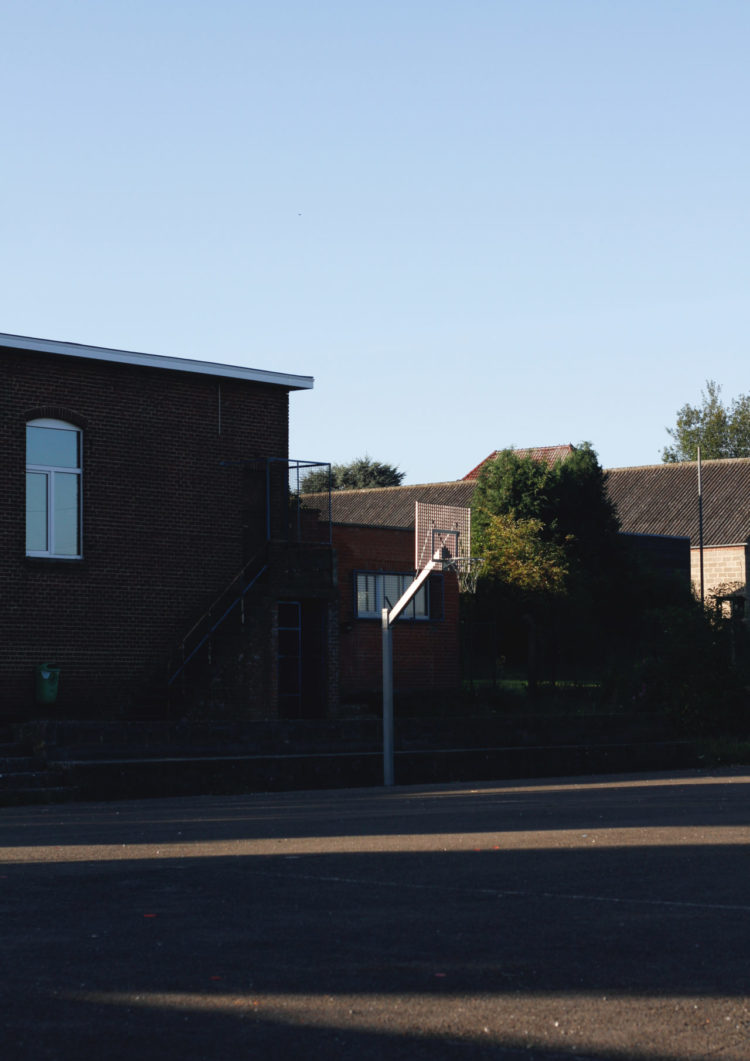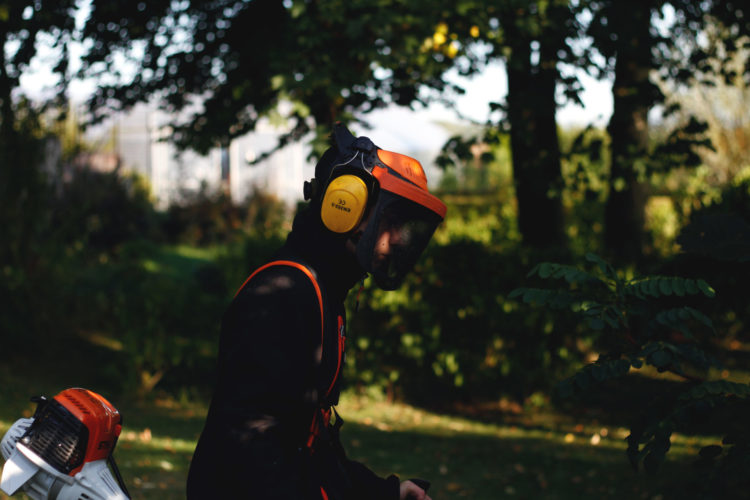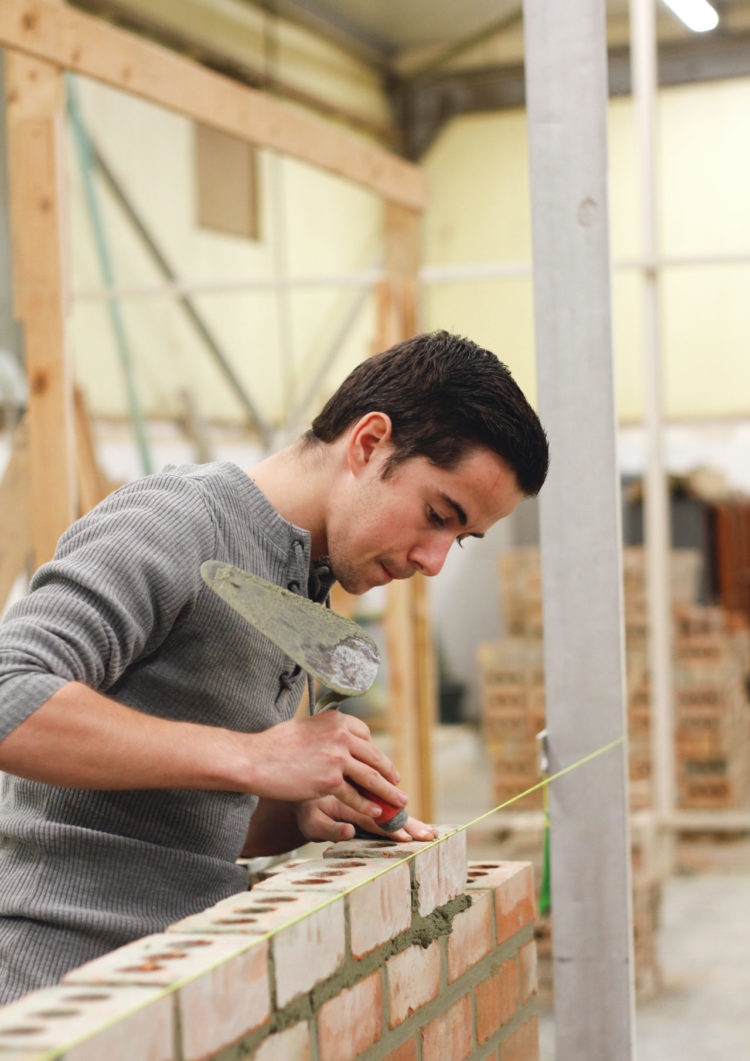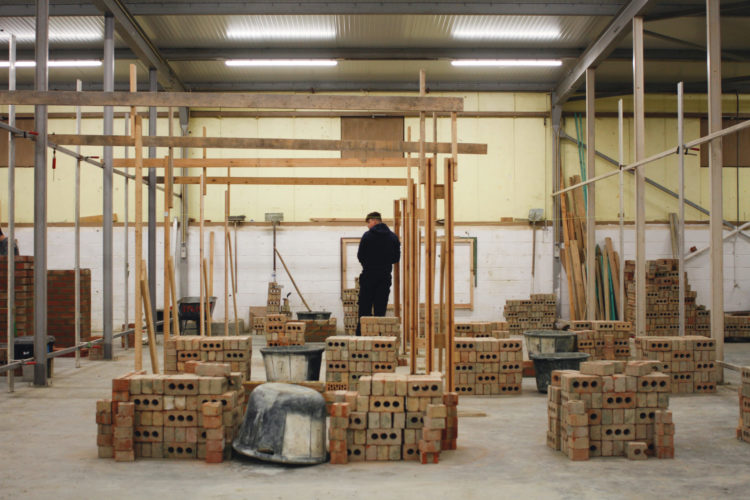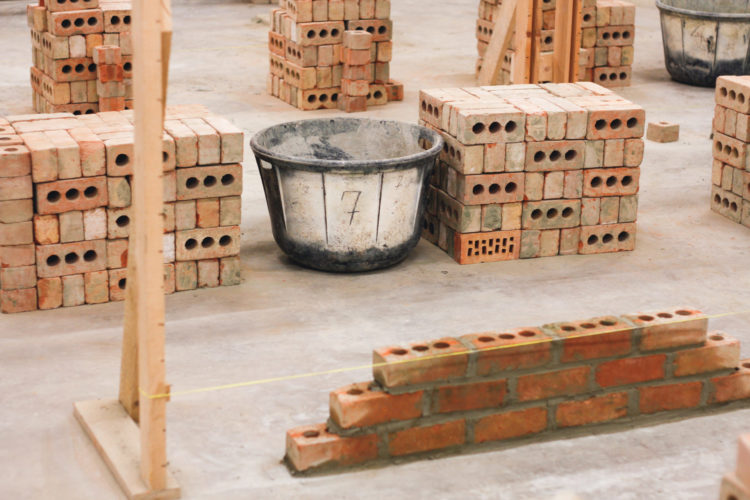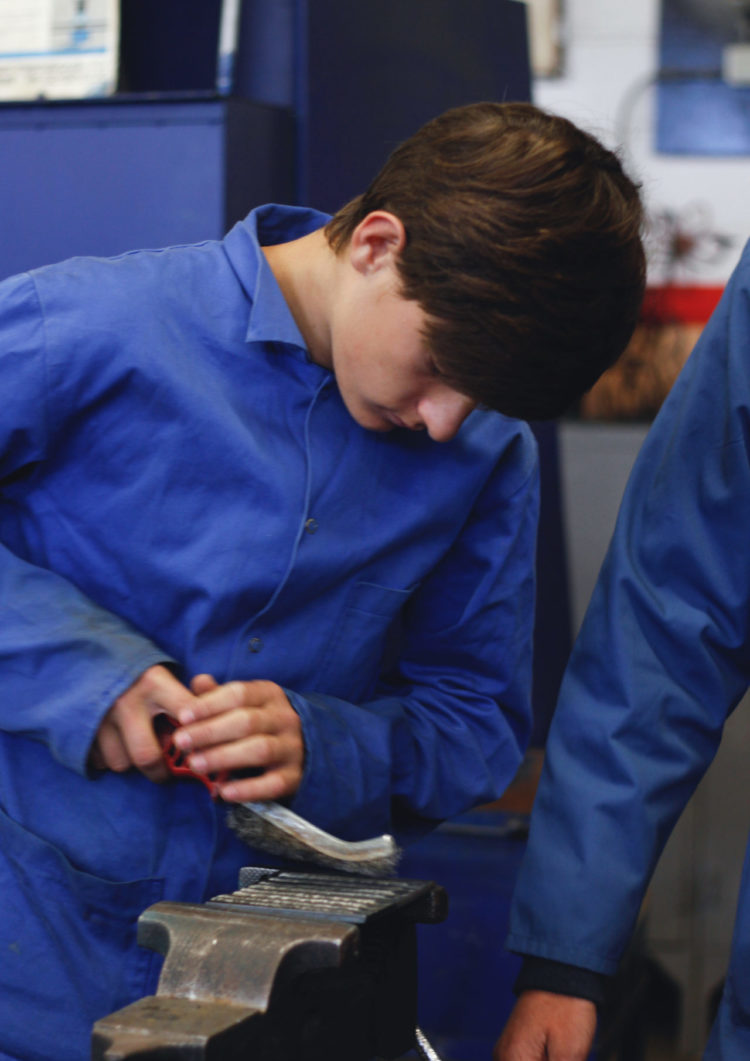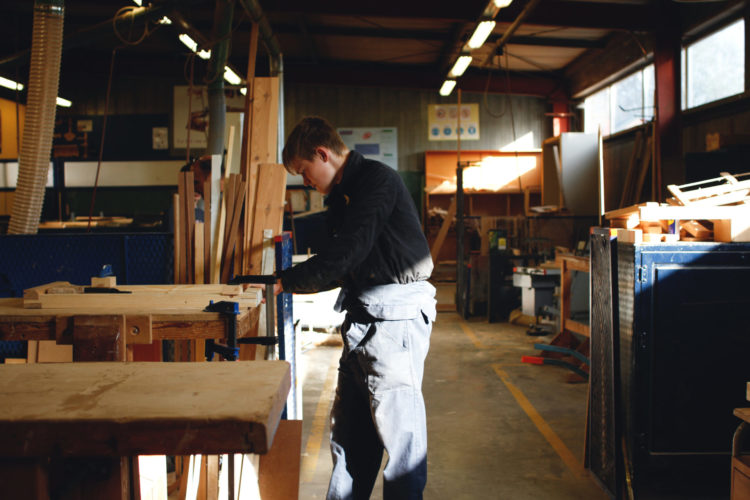The school training the professionals of tomorrow
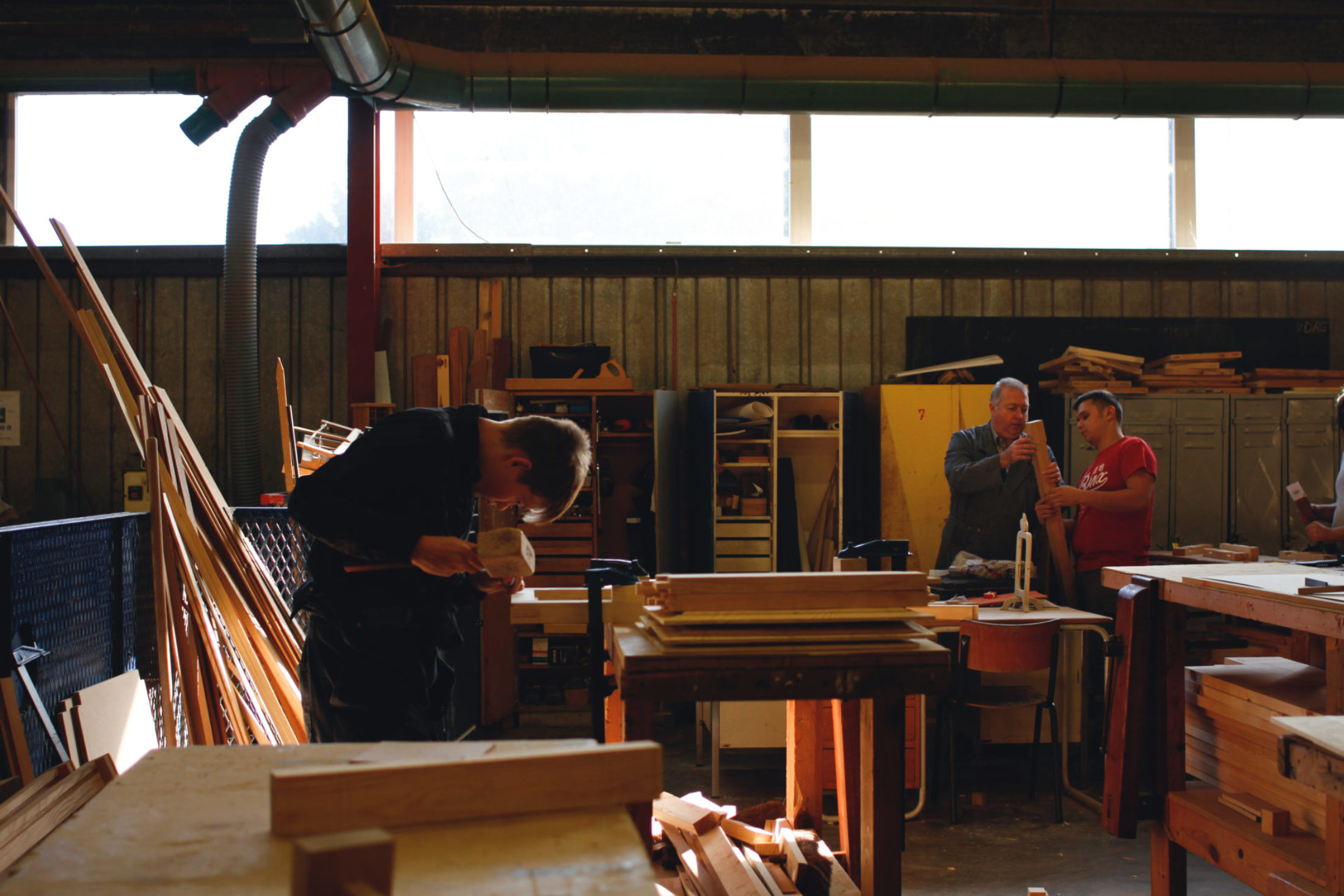
Institut des Métiers de la Construction et de l’Environnement, Erquelinnes
IMCE offers specialised secondary education. Thanks to skills training in sectors where there is no lack of work, the school offers its students many opportunities.
Students begin every day at the Institut des Métiers de la Construction et de l’Environnement (IMCE) by getting in line as soon as the bell sounds, at 8.30 a.m. precisely. The group leader takes the time to greet them and to wish them a good day. Far from being trivial, this moment reveals the spirit that the management seeks to inject in the establishment. “Here, the first thing we teach is to respect each other by greeting each other in the morning,” Christophe Quittelier, school director.

Through the citizenship councils, the IMCE encourages listening, public speaking and co-constructing achievable solutions. The IMCE is a pioneer in this field. “In a few years, we went from 6 or 7 acts of violence per week to 6 or 7… per year!” Christophe Quittelier is pleased to report. It should be noted that, for twenty years, the emphasis here has been on speaking and living together. “The best school is the one where the students’ needs are met and where we listen to them.” This passionate pedagogue works on the well-being of young people because he knows that their personal development reveals their potential. And these young people certainly aren’t lacking potential!

Appreciating successes
In ironwork/welding, students who finish their curriculum in June find work from 1 July. “Some, like Laurent, are very creative and have a great deal of imagination,” the teacher says.
The successes of these young students are highlighted in every section. They are thus directly involved in embellishing their surroundings. “The school’s two hand-turned columns were made by a masonry student. The same is true of the cobbled path. These are points of great pride,” comments one of the teachers. Similarly, the horticulture students are responsible for maintaining the institution’s green spaces.

Diving into the world of work
But that’s not all: the work-study students are plunged into the reality of their future trade when they work on site three days a week. “It’s an excellent way to develop life skills. They have contracts for three years and are paid,” Johan Douillez, who teaches masonry, explains. An excellent strategy since, if the work placement runs smoothly, getting a job is possible. “After having worked for the boss, some will even start their own business,” he adds. In horticulture, too, the students go to private homes to maintain lawns and trim hedges. “It’s gratifying because at the end of the day, they can say they were true professionals,” says Ingrid Lust, horticulture teacher.

Reintegrate smoothly into society
IMCE also has two other locations. La Passerelle welcomes projects in Form 4, equivalent to regular teaching, with the aim of reintegrating the student. Form 2 (social/professional adaptation) is also organised, which works on student autonomy and social integration (partnership with two adapted work companies). The home project welcomes students without a defined project in an in-school socialization support structure to help them find their professional path smoothly, based on their needs.. “Here, we have to adjust to the students. When faced with similar problems, the reaction will not necessarily be identical for two different students,” states Philippe Chauvaux, who is responsible for La Passerelle.
“Specialised education always suffers from an unjust and poor image, while there are often qualifications and work at the conclusion,” Christophe Quittelier believes. Specialised in professional sectors where opportunities exist, the educational establishment in effect trains students in manual occupations, some of which are suffering a shortage.
Contact:
Rue de Maubeuge, 172
6560 Erquelinnes
+32(0)71 55 59 65
www.acis-group.org
imce-erquelinnes@acis-group.org

